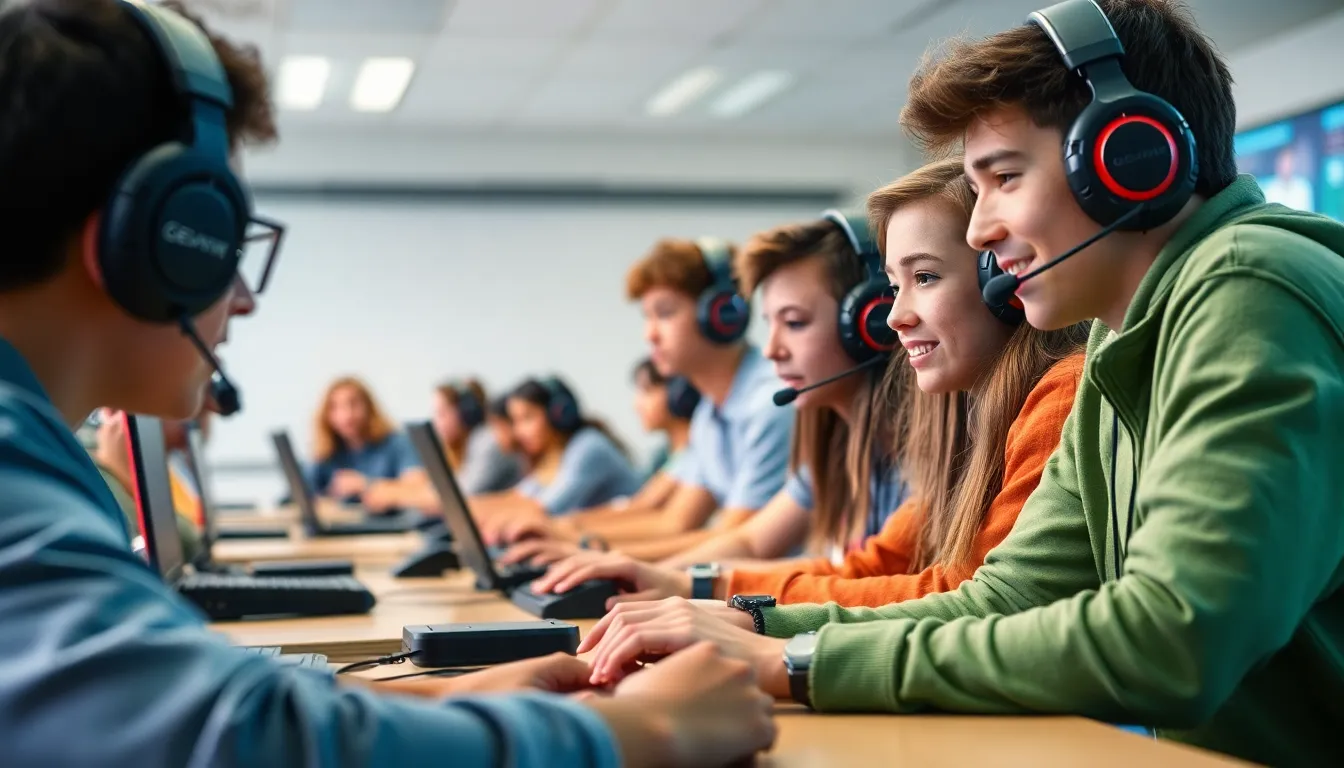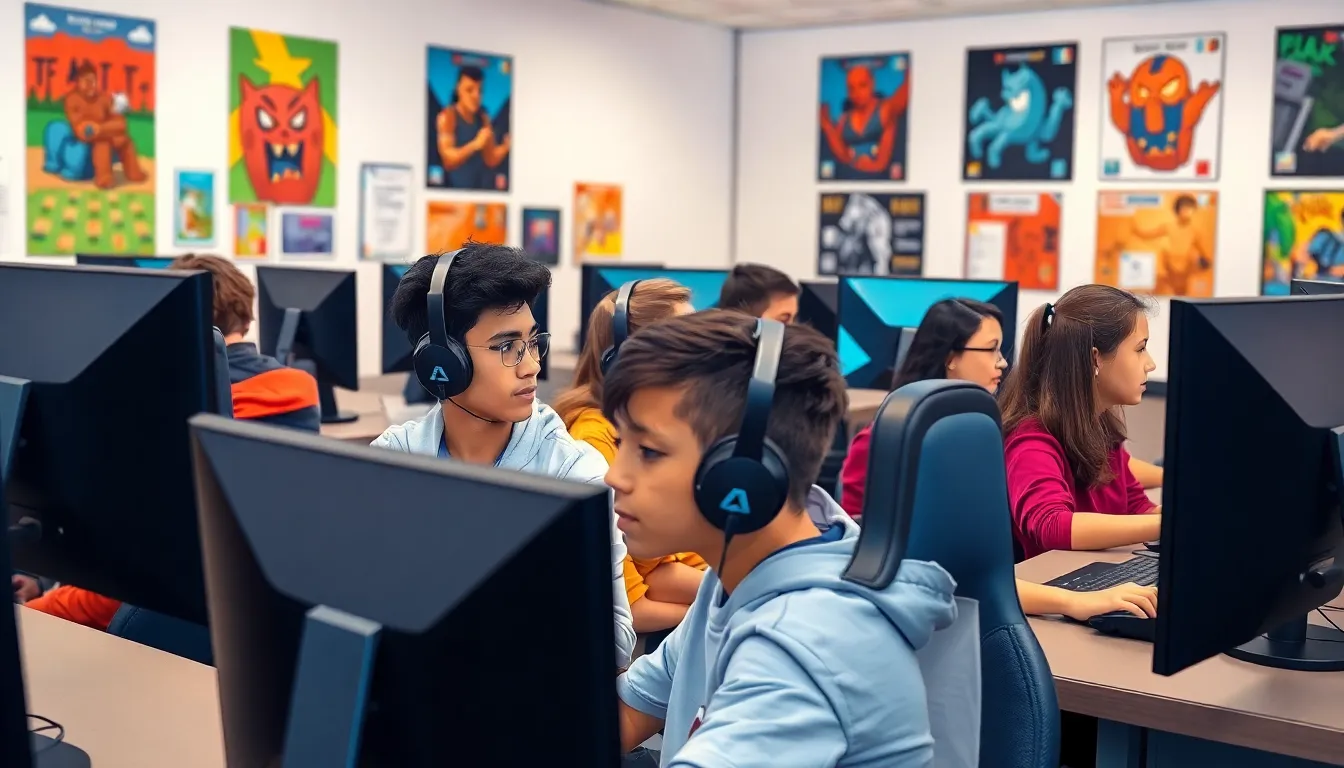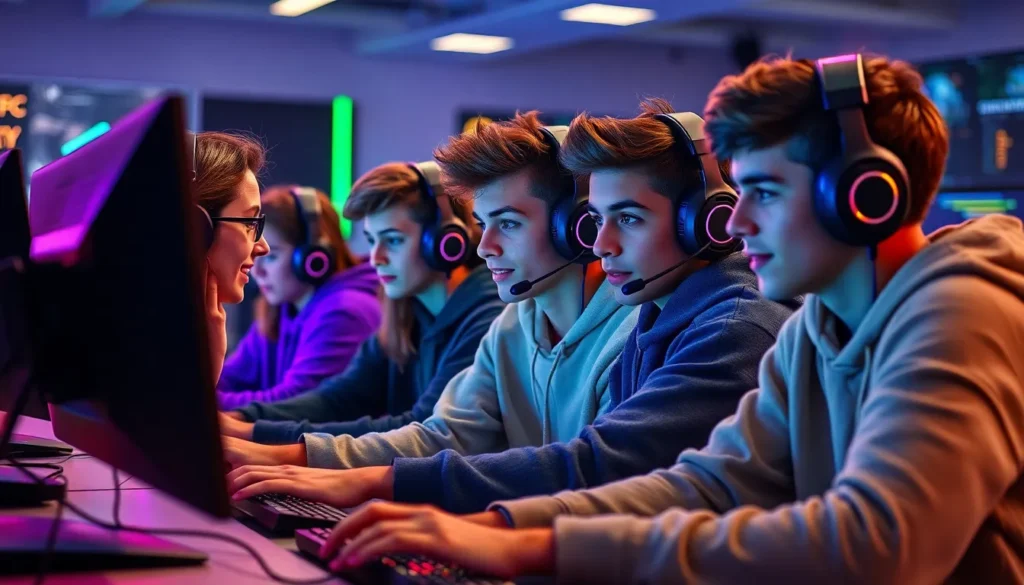Esports in schools? You bet! Imagine a world where students trade in their textbooks for gaming controllers and still ace their grades. As gaming takes center stage, educational institutions are catching on to the benefits of competitive gaming. It’s not just about slaying dragons or scoring goals; it’s about teamwork, strategy, and building skills that go beyond the screen.
Esports in Schools
Esports integration into school programs gains momentum, reflecting a significant shift in educational landscapes. Schools increasingly recognize its potential to engage students through competitive gaming.Growth and Popularity
Esports clubs in schools grow rapidly, attracting hundreds of participants across various institutions. Recent surveys indicate that over 50% of high schools now offer esports programs. With the increasing accessibility of technology, students enjoy playing popular titles such as League of Legends and Fortnite. Many schools host tournaments that draw large audiences, fostering school spirit. Participation in esports extends beyond the players, creating a vibrant community that includes coaches, commentators, and fans.Impact on Students
Students involved in esports build vital skills that translate into academic and personal success. Teamwork enhances collaboration among peers, making effective communication essential. Critical thinking arises from strategizing to outmaneuver opponents, improving problem-solving abilities. Data from the National Association of Esports shows that students participating in esports achieve higher GPAs compared to non-participants. Furthermore, involvement in esports can lead to increased school attendance, as students feel a greater connection to their institution.Benefits of Esports in Schools

Academic Enhancement
Esports encourages academic improvement by promoting discipline and commitment. Students engaged in competitive gaming often maintain higher GPAs compared to their peers. This correlation highlights how participation can lead to better time management and organizational skills. Additionally, esports fosters a sense of accountability, motivating students to balance their gaming and academic responsibilities. Schools that integrate esports programs report an increase in attendance rates, as students feel a deeper connection to their educational environment. Enhanced focus and strategic thinking required in gaming translate into improved problem-solving abilities in academic settings.Social Skills Development
Involvement in esports enhances social interaction among students. Team-based competitions necessitate effective communication and collaboration. Players learn to work together, developing camaraderie that extends beyond the game. Many students form friendships through shared gaming experiences, creating a sense of belonging within their school community. Participating in tournaments cultivates sportsmanship, teaching valuable lessons about winning and losing gracefully. Esports also encourages inclusivity, as diverse groups of students unite around a common interest, fostering an environment where everyone feels valued. Overall, the positive social dynamics established through esports support personal growth and interpersonal skill development.Challenges of Implementing Esports
Implementing esports in schools presents several challenges that require strategic consideration.Budget Considerations
Funding presents a significant hurdle for many schools. Costs associated with equipment, software licenses, and maintenance can escalate quickly. Schools must allocate budgets wisely, ensuring they balance resources for esports with other essential programs. Hosting tournaments incurs additional expenses, including venue setup and promotional materials. According to a recent survey, around 30% of schools report budget constraints as a primary barrier to adopting esports. Engaging sponsors or partnering with local businesses can provide financial support and ease the financial burden.Balancing Academics and Gaming
Finding equilibrium between gaming and academic responsibilities remains a crucial concern. Students may struggle to manage their time effectively, leading to potential academic decline. Schools adopting esports should implement guidelines that prioritize academic performance. Structures like mandatory study sessions can support students in maintaining their grades. Reports from the National Association of Esports show that students involved in esports often experience increased academic engagement when schools enforce such measures. Educators play a vital role in guiding students to navigate their commitments without compromising academic success.Successful Esports Programs
Esports programs in schools demonstrate notable achievements. Various institutions have successfully integrated competitive gaming into their curriculums.Case Studies
One example of success includes the University of California, Irvine, which launched an esports program in 2016. This program emphasizes academic support alongside gaming, leading to improved GPAs among participants. Another instance is the high school esports league in Michigan, which engages over 400 schools. Participating students reported not only increased collaboration but also enhanced communication skills. These case studies highlight the positive impact of structured esports programs, reinforcing the connection between gaming and academic success.


More Stories
Esports Cafe: The Ultimate Hub for Gamers to Connect, Compete, and Level Up
Esports Fitness: Transform Your Game with Health, Nutrition, and Performance Tips
Esports in the Olympics: Will Gaming Transform the Future of Competitive Sports?